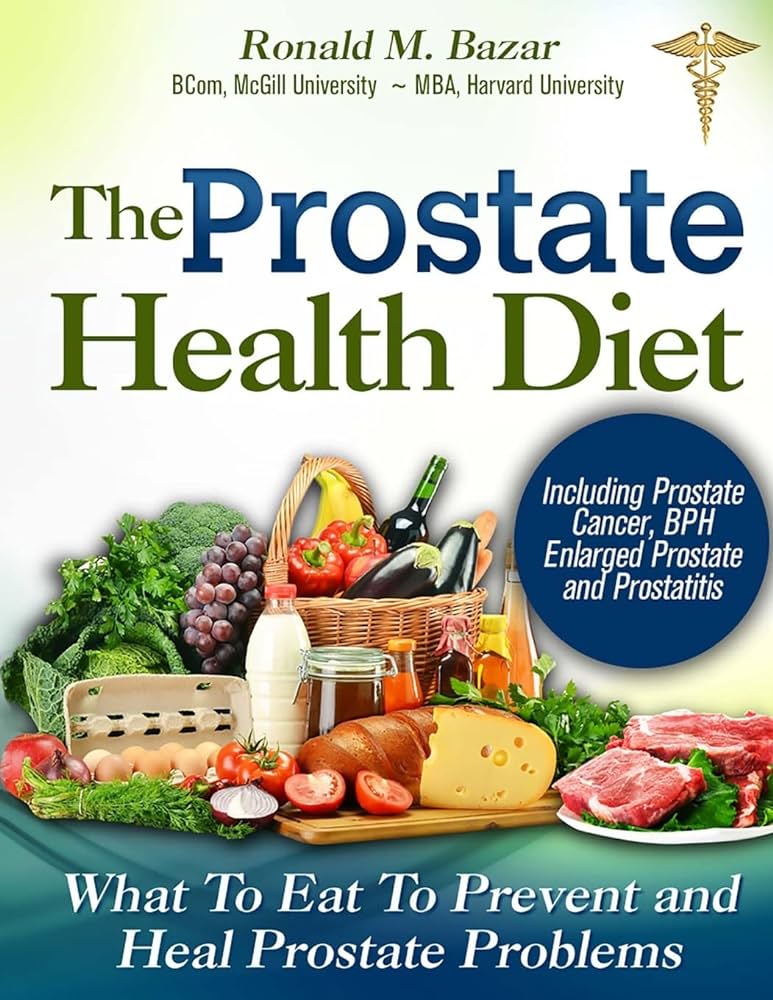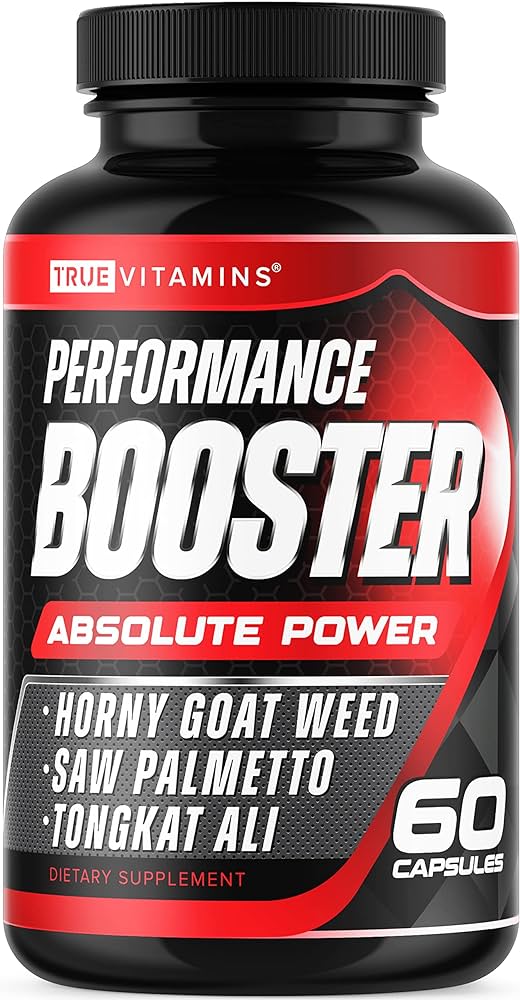The Prostate Cancer Diet: Top Foods to Eat and Avoid for Prevention and Treatment

Understanding Prostate Cancer and Diet

Prostate cancer is a prevalent disease that affects millions of men worldwide, and its incidence continues to rise. While genetics and age play a significant role in its development, recent research suggests that diet may also influence the risk and progression of prostate cancer. Understanding the relationship between prostate cancer and diet is essential for men looking to maintain optimal prostate health.
Numerous studies have explored the link between diet and prostate cancer, highlighting various factors that may contribute to its development. These factors include certain nutrients, food groups, and dietary patterns. By analyzing large-scale epidemiological studies and conducting experimental research, scientists have gained insights into how specific dietary choices can impact prostate health. Understanding which foods and nutrients are beneficial or harmful is crucial for both preventing and managing prostate cancer. In the following sections, we will delve into the role of nutrition in preventing and treating prostate cancer, highlighting key nutrients, food groups, and dietary strategies that can promote prostate health.
The Role of Nutrition in Preventing and Treating Prostate Cancer

Prostate cancer is one of the most commonly diagnosed cancers in men worldwide. While various treatment options are available, there is growing evidence to suggest that nutrition plays a significant role in both preventing and treating prostate cancer. A diet rich in essential nutrients and antioxidants has been shown to support prostate health and reduce the risk of cancer development or progression.
Firstly, studies have demonstrated that certain key nutrients are particularly important for maintaining prostate health. These include vitamins such as vitamins C, D, and E, as well as minerals like selenium and zinc. These nutrients act as antioxidants, helping to protect the prostate cells from damage caused by free radicals. Free radicals are unstable molecules that can cause cellular damage and potentially lead to the development of cancer. By incorporating foods that are naturally rich in these nutrients into the diet, individuals may help support the overall health of their prostate and reduce the risk of cancer.
Key Nutrients for Prostate Health

Prostate health is influenced by a variety of factors, including diet and nutrition. Incorporating key nutrients into your diet can help support a healthy prostate. One essential nutrient for prostate health is zinc. Zinc plays a crucial role in prostate function and has been shown to help regulate cell growth and maintain proper hormone levels. Good sources of zinc include oysters, beef, poultry, and pumpkin seeds.
Another important nutrient for prostate health is lycopene. Lycopene is a powerful antioxidant that helps protect cells from damage and reduce the risk of prostate cancer. Tomatoes and tomato-based products, such as tomato sauce and tomato juice, are excellent sources of lycopene. Consuming cooked tomatoes, which release more lycopene, can be especially beneficial. Incorporating these key nutrients into your daily diet can help support a healthy prostate and reduce the risk of prostate-related issues.
Incorporating Antioxidant-rich Foods into Your Diet
Eating a diet rich in antioxidants can have numerous benefits for overall health, including the prevention and treatment of prostate cancer. Antioxidants are substances that help protect the body’s cells from damage caused by free radicals, which are unstable molecules that can lead to chronic inflammation, DNA damage, and an increased risk of cancer. By incorporating antioxidant-rich foods into your diet, you can help support your prostate health and reduce the risk of developing prostate cancer.
One group of antioxidants that has been extensively studied for its potential anti-cancer properties is polyphenols. These compounds are found in a variety of plant-based foods, such as fruits, vegetables, nuts, and seeds. Polyphenols have been shown to have antioxidant, anti-inflammatory, and anti-carcinogenic effects, making them an excellent addition to a prostate-healthy diet. Some examples of polyphenol-rich foods include berries, green tea, dark chocolate, and pomegranates. By including these foods in your diet, you can increase your intake of antioxidants and potentially reduce your risk of prostate cancer.
In addition to polyphenols, other antioxidants such as vitamins C and E, beta-carotene, and selenium have also been shown to play a role in prostate health. These nutrients can be found in a variety of foods, including citrus fruits, leafy green vegetables, nuts and seeds, whole grains, and seafood. Incorporating a wide variety of antioxidant-rich foods into your diet can help provide your body with the necessary nutrients to support prostate health and reduce the risk of prostate cancer.
• Antioxidants help protect the body’s cells from damage caused by free radicals
• Free radicals can lead to chronic inflammation, DNA damage, and an increased risk of cancer
• Polyphenols are a group of antioxidants found in fruits, vegetables, nuts, and seeds
• Polyphenols have antioxidant, anti-inflammatory, and anti-carcinogenic effects
• Examples of polyphenol-rich foods include berries, green tea, dark chocolate, and pomegranates
• Vitamins C and E, beta-carotene, and selenium also play a role in prostate health
• These nutrients can be found in citrus fruits, leafy green vegetables,nuts and seeds,
whole grains,and seafood.
• Incorporating a wide variety of antioxidant-rich foods into your diet is beneficial for prostate health.
The Importance of Fiber for Reducing Prostate Cancer Risk
Fiber plays a crucial role in reducing the risk of prostate cancer. Research has shown that a diet rich in fiber can lower the risk of developing this disease. Fiber is a type of carbohydrate that cannot be digested by the body, but it provides numerous health benefits. When it comes to prostate health, fiber helps to lower levels of certain hormones in the body, such as estrogen and testosterone, which have been linked to an increased risk of prostate cancer. Additionally, fiber helps to regulate bowel movements, preventing constipation and ensuring the efficient elimination of waste products from the body. By promoting regular bowel movements, fiber reduces the exposure of the prostate gland to harmful substances that can potentially lead to cancer development.
Including fiber-rich foods in your diet is an effective way to reduce the risk of prostate cancer. Whole grains, such as oatmeal, brown rice, and whole wheat bread, are excellent sources of fiber. Additionally, fruits and vegetables, especially those with edible skins and seeds, are rich in fiber and should be consumed regularly. Some examples include apples, berries, oranges, broccoli, and Brussels sprouts. Legumes, such as beans and lentils, are also high in fiber and can be incorporated into soups, salads, or main dishes for added health benefits. Aim to consume at least 25-30 grams of fiber per day from a variety of sources to maximize its protective effects against prostate cancer.
Healthy Fats and Prostate Cancer Prevention
Diet plays a crucial role in prostate cancer prevention, and one area that has gained attention is the role of healthy fats. While the relationship between fats and prostate cancer is complex, studies have suggested that incorporating certain types of fats into your diet may help reduce the risk of developing this disease.
One type of healthy fat that has been linked to prostate cancer prevention is omega-3 fatty acids. These essential fats are found in fatty fish like salmon, mackerel, and sardines, as well as in flaxseeds, chia seeds, and walnuts. Omega-3 fatty acids have been shown to possess anti-inflammatory properties and may help in inhibiting the growth of cancer cells in the prostate. Additionally, these fats may also help in reducing the risk of aggressive prostate cancer.
Another type of healthy fat that may be beneficial for prostate health is monounsaturated fat. Found in foods like olive oil, avocados, and nuts, monounsaturated fats have been associated with a lower incidence of prostate cancer. These fats are rich in antioxidants and have been shown to have anti-cancer effects. Incorporating sources of monounsaturated fats into your diet, along with other key nutrients for prostate health, can provide a balanced approach to reducing the risk of prostate cancer.
As with any dietary recommendation, it’s important to consult with a healthcare professional before making significant changes to your diet. While healthy fats show promise in prostate cancer prevention, it’s essential to consider overall lifestyle factors and individual health conditions for a comprehensive approach to reducing the risk of this disease. By incorporating a variety of healthy fats into a balanced and prostate-healthy diet, you can potentially help support optimal prostate health and reduce the risk of prostate cancer.
The Link Between Dairy Consumption and Prostate Cancer
Dairy products, such as milk, cheese, and yogurt, are often a staple in many people’s diets. However, there has been some concern about their potential link to prostate cancer. Prostate cancer is the second most common cancer in men worldwide, so it’s important to understand the potential risks associated with certain dietary choices.
Several studies have investigated the relationship between dairy consumption and prostate cancer risk. Some studies have suggested that a higher intake of dairy products, particularly whole milk and high-fat dairy, may increase the risk of developing prostate cancer. This may be due to the presence of certain hormones, such as insulin-like growth factor 1 (IGF-1), in milk. IGF-1 has been found to promote the growth of prostate cancer cells in laboratory studies.
On the other hand, not all studies have found a clear association between dairy consumption and prostate cancer risk. Some research suggests that there may be a protective effect of dairy products, particularly fermented dairy, on prostate health. For example, consuming low-fat yogurt has been linked to a lower risk of developing aggressive prostate cancer. Additionally, dairy products can be a good source of calcium, which is important for overall bone health.
It’s worth noting that more research is needed to fully understand the relationship between dairy consumption and prostate cancer risk. While some studies suggest a potential link, others have found no significant association. As with any dietary choice, moderation and balance are key. It may be beneficial to opt for low-fat or fermented dairy products and to incorporate a variety of other nutrient-rich foods into your diet for optimal prostate health.
Red Meat and Processed Meat: Potential Risks for Prostate Cancer
Red meat and processed meat consumption has long been associated with an increased risk of prostate cancer. These types of meat often undergo methods such as smoking, curing, or grilling, which can lead to the formation of carcinogenic compounds. Research suggests that the high intake of these meats, especially when consumed regularly or in large amounts, may contribute to the development of prostate cancer.
A study published in the World Journal of Urology analyzed data from multiple research studies and found a positive association between red meat and processed meat consumption and the risk of prostate cancer. The researchers concluded that individuals who consume high amounts of red meat and processed meat have an elevated risk of developing prostate cancer compared to those who consume less of these meats. These findings highlight the importance of considering dietary choices in prostate cancer prevention and management.
Cruciferous Vegetables and their Anti-Cancer Properties
Cruciferous vegetables, such as broccoli, cauliflower, kale, Brussels sprouts, and cabbage, have gained significant attention for their potential anti-cancer properties, particularly in relation to prostate cancer. These vegetables are rich in compounds called glucosinolates, which have been shown to have protective effects against cancer. When these vegetables are digested, glucosinolates are broken down into biologically active compounds, such as indoles and isothiocyanates, which have been found to inhibit the growth of cancer cells and induce their death through various mechanisms.
Research suggests that these compounds may exert their anti-cancer effects by reducing inflammation, modulating hormone metabolism, and preventing the formation of carcinogens. For instance, indole-3-carbinol, a compound found in cruciferous vegetables, has been shown to inhibit the activity of certain enzymes involved in the metabolism of sex hormones, such as testosterone and estrogen. This may help reduce the risk of prostate cancer, as these hormones play a role in the development and progression of the disease.
Furthermore, isothiocyanates derived from cruciferous vegetables have demonstrated both preventive and therapeutic effects in prostate cancer cells. They have been shown to inhibit cancer cell growth, induce cell cycle arrest, and promote apoptosis, or programmed cell death. Additionally, these compounds exhibit antioxidant and anti-inflammatory properties, which may help protect against DNA damage and reduce the risk of cancer development.
While the research on cruciferous vegetables and prostate cancer is promising, it is important to note that individual responses may vary, and the consumption of these vegetables should be part of a balanced diet that includes a variety of fruits, vegetables, whole grains, and lean protein sources. It is always advisable to consult with a healthcare professional or registered dietitian before making significant changes to your diet, especially if you have any underlying health conditions or are taking medication.
The Benefits of Tomatoes and Lycopene for Prostate Health
Tomatoes are a popular fruit that have long been associated with various health benefits. When it comes to prostate health, tomatoes and their rich content of lycopene have garnered attention for their potential positive effects. Lycopene is a carotenoid pigment found in tomatoes, and it is known for its antioxidant properties.
Studies have suggested a link between lycopene intake and a reduced risk of prostate cancer. The antioxidant activity of lycopene helps to neutralize harmful free radicals, which can damage cells and contribute to the development of cancer. Additionally, lycopene may also have anti-inflammatory properties that could further benefit prostate health.
It’s worth noting that the benefits of lycopene for prostate health are most pronounced when consumed through whole food sources, such as tomatoes, rather than through supplements. This is because whole foods contain a variety of other beneficial compounds that work synergistically with lycopene to promote overall health. Including tomatoes in your diet, whether fresh, cooked, or in the form of tomato-based products, can be a tasty way to support prostate health.
Here’s a table on the benefits of tomatoes and lycopene for prostate health:
| Tomatoes and Lycopene for Prostate Health | Key Concepts | Credible Source |
|---|---|---|
| Lycopene-Rich Foods | – Key Concept: Tomatoes contain lycopene, a potent antioxidant linked to prostate health. | American Institute for Cancer Research – Lycopene |
| – Considerations: Including lycopene-rich foods supports overall well-being. | ||
| Reduced Prostate Cancer Risk | – Key Concept: Lycopene consumption is associated with a lower risk of developing prostate cancer. | National Cancer Institute – Prostate Cancer Prevention |
| – Considerations: Regular intake of tomatoes may contribute to a protective effect. | ||
| Antioxidant and Anti-Inflammatory | – Key Concept: Lycopene’s antioxidant properties may help combat oxidative stress and inflammation. | Journal of the National Cancer Institute |
| – Considerations: A diet rich in antioxidants supports prostate health. |
Fish and Omega-3 Fatty Acids: Promoting Prostate Health
Fish and omega-3 fatty acids have been widely studied for their potential benefits in promoting prostate health. Omega-3 fatty acids are a type of polyunsaturated fat that are found in high concentrations in fatty fish such as salmon, mackerel, and sardines. These essential fats play a crucial role in various physiological processes in the body.
Research suggests that consuming fish and omega-3 fatty acids may help reduce the risk of developing prostate cancer. A study published in the Journal of the National Cancer Institute found that men who consumed higher amounts of fish had a lower risk of advanced prostate cancer. Another study published in the American Journal of Clinical Nutrition reported that higher intake of omega-3 fatty acids was associated with a reduced risk of prostate cancer.
The potential protective effect of fish and omega-3 fatty acids on prostate health may be attributed to their anti-inflammatory properties. Omega-3 fatty acids have been shown to help reduce inflammation in the body, and chronic inflammation is believed to play a role in the development and progression of prostate cancer. Additionally, these healthy fats may also have a positive impact on hormone regulation, which could further contribute to prostate health.
While the evidence is promising, it is important to note that more research is needed to determine the optimal intake of fish and omega-3 fatty acids for prostate health. As with any dietary recommendation, it is advisable to consult with a healthcare professional to determine the best approach for your individual needs.
The Impact of Alcohol and Prostate Cancer Risk
Alcohol consumption is a common practice in many societies, but its potential impact on prostate cancer risk has raised concerns among researchers and healthcare professionals. Several studies have examined the relationship between alcohol and prostate cancer, albeit with varying results. Some research suggests that moderate alcohol intake may have a protective effect on prostate cancer risk, while others indicate a potential increase in risk with heavy drinking. However, it is important to keep in mind that the available evidence is not conclusive and more research is needed to fully understand the impact of alcohol on prostate health.
One possible explanation for the conflicting findings is that alcohol’s effect on prostate cancer risk may vary depending on individual factors such as genetics and lifestyle. It is also worth noting that different types of alcoholic beverages may have different effects. For example, some studies suggest that red wine, which contains compounds like resveratrol and polyphenols, may have protective properties against prostate cancer. On the other hand, heavy alcohol consumption, regardless of the type of beverage, has been associated with increased cancer risk in general. These complexities highlight the importance of individualized advice and moderation when it comes to alcohol intake for those concerned about prostate health.
Sugar, Sweets, and Prostate Cancer: A Hidden Connection
High sugar consumption has been linked to various health issues, including obesity, diabetes, and heart disease. Emerging research suggests that there may also be a hidden connection between sugar, sweets, and prostate cancer. Several studies have found a potential association between high sugar intake and an increased risk of developing prostate cancer. These studies indicate that a high-sugar diet may promote inflammation, insulin resistance, and hormone imbalances, which can contribute to the development and progression of prostate cancer.
One study published in the British Journal of Cancer found that men with a high intake of sugar-sweetened foods and beverages had a 21% higher risk of developing advanced prostate cancer compared to those with a lower intake. Another study published in the American Journal of Clinical Nutrition observed that men with higher blood sugar levels were more likely to develop aggressive forms of prostate cancer. While these findings are preliminary and more research is needed, they highlight the importance of reducing sugar consumption for overall health and potentially reducing the risk of prostate cancer.
Creating a Balanced and Prostate-Healthy Diet Plan
To create a balanced and prostate-healthy diet plan, it is important to focus on incorporating a variety of nutrient-rich foods into your daily meals. One key aspect to consider is consuming a wide range of fruits and vegetables. These foods are rich in vitamins, minerals, and antioxidants that can help support prostate health. Aim to include a colorful mix of vegetables such as broccoli, spinach, kale, carrots, and bell peppers.
In addition to vegetables, it is important to include lean sources of protein in your diet. Fish, such as salmon, trout, and sardines, are excellent choices as they are rich in omega-3 fatty acids, which have been linked to reduced prostate cancer risk. Incorporating plant-based proteins like tofu, lentils, and beans can also be beneficial for overall prostate health. It is important to balance your protein sources with other food groups, such as whole grains, nuts, and seeds, to ensure a well-rounded diet. Ensuring an adequate intake of fiber-rich foods like whole grains, legumes, and fruits can also support prostate health.
What is prostate cancer?
Prostate cancer is a type of cancer that develops in the prostate gland of men. It is one of the most common types of cancer in men and can affect the urinary and reproductive systems.
How can diet affect prostate cancer risk?
Diet plays a significant role in preventing and treating prostate cancer. Certain nutrients and foods can help reduce the risk of prostate cancer or slow down its progression.
What are some key nutrients for prostate health?
Key nutrients for prostate health include lycopene, selenium, vitamin D, vitamin E, and zinc. These nutrients have been shown to have protective effects against prostate cancer.
How can I incorporate antioxidant-rich foods into my diet?
To incorporate antioxidant-rich foods into your diet, you can include fruits and vegetables such as berries, spinach, kale, and broccoli. These foods are packed with antioxidants that help protect against prostate cancer.
Why is fiber important for reducing prostate cancer risk?
Fiber helps maintain a healthy digestive system and promotes regular bowel movements. It may also help lower the risk of prostate cancer by reducing levels of certain hormones that can contribute to cancer growth.
Can healthy fats help prevent prostate cancer?
Yes, healthy fats such as those found in nuts, seeds, avocados, and fish can help reduce the risk of prostate cancer. These fats contain omega-3 fatty acids, which have anti-inflammatory properties and may inhibit cancer cell growth.
Is there a link between dairy consumption and prostate cancer?
Some studies suggest that high intake of dairy products, particularly high-fat dairy, may increase the risk of prostate cancer. However, more research is needed to fully understand this link.
Are red meat and processed meat risky for prostate cancer?
High consumption of red meat and processed meat has been associated with an increased risk of prostate cancer. It is advisable to limit the intake of these meats and opt for lean protein sources instead.
What are cruciferous vegetables and how do they help prevent prostate cancer?
Cruciferous vegetables, such as broccoli, cauliflower, cabbage, and Brussels sprouts, contain compounds that have been shown to have anti-cancer properties. Including these vegetables in your diet can help reduce the risk of prostate cancer.
How do tomatoes and lycopene benefit prostate health?
Tomatoes and other lycopene-rich foods have been linked to a reduced risk of prostate cancer. Lycopene is a powerful antioxidant that helps protect the prostate cells from damage.
Can fish and omega-3 fatty acids promote prostate health?
Yes, fish and omega-3 fatty acids have been associated with a lower risk of prostate cancer. Including fatty fish like salmon, mackerel, and sardines in your diet can provide you with these beneficial nutrients.
What is the impact of alcohol on prostate cancer risk?
Excessive alcohol consumption has been linked to an increased risk of prostate cancer. It is best to consume alcohol in moderation or avoid it altogether to reduce the risk.
Is there a hidden connection between sugar, sweets, and prostate cancer?
Some studies suggest that a high intake of sugar and sweets may contribute to an increased risk of prostate cancer. It is important to limit your consumption of sugary foods and opt for healthier alternatives.
How can I create a balanced and prostate-healthy diet plan?
To create a balanced and prostate-healthy diet plan, focus on incorporating a variety of fruits, vegetables, whole grains, lean proteins, and healthy fats into your meals. Limit the consumption of processed foods, red meat, and sugary treats.






